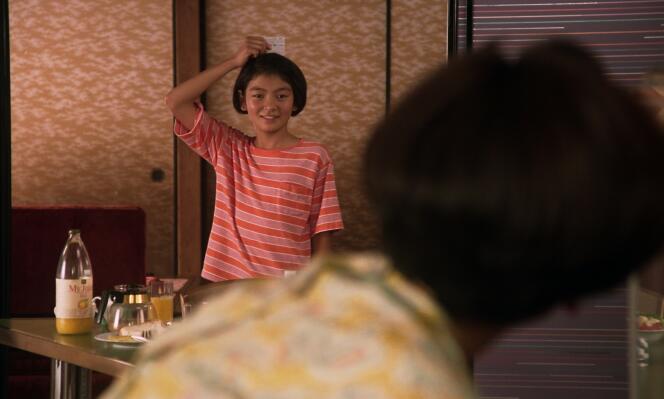THE OPINION OF THE “WORLD” – MASTERPIECE
Despite everything that reaches us from Japanese cinema, large sections of it still remain unknown, such as director Shinji Somai, who died prematurely of lung cancer in 2001, at the age of 53. Admired within the Archipelago, his work has barely crossed borders, and has never known distribution in France with the exception of Typhoon Club (1985, released on screens in August 1989), his most emblematic film, about a group of high school students immobilized within the walls of their establishment because of a storm.
Trained on the Stakhanovist benches of the erotic genre, known as “porn novel”, Somai is one of the rare singular voices to emerge in the 1980s, which concentrates most of his filmography. Its creation began at the height of the decline in Japanese production, the studio system finishing its collapse, at a time when it found less international exposure, in addition to the great veterans who were still filming (Akira Kurosawa) or the scattered elders of the New Wave (Nagisa Oshima, Shohei Imamura). The following decade, it would be more thunderous filmmakers, like Takeshi Kitano, who took the cake abroad. Somai had the misfortune of falling into the gap.
The unexpected release of Moving (1993), his tenth film out of thirteen, thirty years after its presentation at Cannes (Un certain regard section, the same year as Sonatina, by Kitano), comes at the right time to revive interest around this wonderful stylist, invaluable painter of adolescence. The film uses crazy energy and a veritable deluge of forms to recount an intimate event that seems a priori innocuous, namely the “effective” divorce of two ordinary adults, that is to say what remains to be done once the signed papers, a painful process of physical and moral separation. But seen through the eyes of their little daughter, Renko (Tomoko Tabata), the thing takes on the dimension of an open fault in the edifice of reality, of a complete reversal of the sensible world.
Intransigence
The story opens with the “move” of the father, Kenichi (Kiichi Nakai), leaving the family home for a more functional bachelor pad. The mother, Nazuna (Junko Sakurada), working girl in a suit, convinces herself as best she can that a new life is beginning, not to mention that the previous one still has to be paid off. Both are simple office workers in Kyoto. And, all along, Renko will never stop running from one to the other, then from the other to one, to convince them otherwise, row in the opposite direction, compensate for their divergence and try to repair them.
You have 57.35% of this article left to read. The rest is reserved for subscribers.
